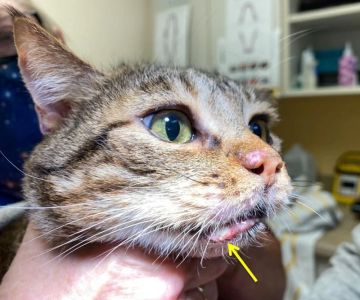
The Top 10 Most Common Kitten Behavioral Issues
- 1-Why Understanding Kitten Behavioral Issues is Important
- 2-The Top 10 Most Common Kitten Behavioral Issues
- 3-Effective Solutions to Address Kitten Behavioral Issues
- 4-Kitten Training Tips to Prevent Behavioral Problems
- 5-Real-Life Case: A Kitten’s Behavioral Transformation
- 6-Final Tips to Maintain Healthy Kitten Behavior
Understanding and managing kitten behavioral issues is crucial for both the kitten’s well-being and the owner’s peace of mind. While kittens are often playful and curious, their natural instincts can sometimes lead to behaviors that are undesirable in the home. By identifying these issues early, you can address them effectively and provide your kitten with a healthy and balanced environment. In this article, we will explore the top 10 most common kitten behavioral issues and provide practical solutions to manage them.
2-The Top 10 Most Common Kitten Behavioral Issues
Kitten behavioral issues can vary greatly from one cat to another, but there are some common problems that most kitten owners encounter. Here are the top 10 most common behavioral issues you might face with your kitten:
- Scratching Furniture: Kittens love to scratch to mark their territory and sharpen their claws. This behavior can lead to scratched furniture, carpets, and even walls.
- Biting and Nipping: Kittens, especially when playing, may bite or nip their owners. This behavior often occurs when they are overexcited or in the process of teething.
- Litter Box Problems: Some kittens may have trouble using the litter box correctly. This could be due to the box being too dirty, the wrong type of litter, or simply a lack of proper training.
- Excessive Meowing: Kittens are vocal animals, but excessive meowing can be a sign of attention-seeking behavior, hunger, or even stress.
- Jumping on Counters: Kittens tend to jump on counters or tables as they explore their environment. This can be a problem if they start jumping on kitchen counters where food is prepared.
- Overactive Play: Kittens are full of energy and can sometimes get too rough during playtime, leading to scratched or injured hands and feet.
- Fear and Anxiety: Some kittens experience fear or anxiety in new environments or around unfamiliar people and animals. This can lead to hiding, hissing, or aggressive behavior.
- Chasing and Pouncing: As natural hunters, kittens often chase and pounce on moving objects. This can be entertaining, but it can also lead to problems if they start attacking your hands or feet during play.
- Chewing on Non-Food Items: Kittens may chew on things they shouldn’t, such as electrical cords, shoes, or furniture, especially if they are teething.
- Marking Territory: Kittens may start spraying urine to mark their territory, particularly if they haven’t been neutered or spayed yet.
Understanding the causes behind these behaviors is key to managing them effectively.

Windsor Animal Clinic
WindsorCapitol Planning RegionConnecticut
46 Poquonock Ave, Windsor, CT 06095, USA
3-Effective Solutions to Address Kitten Behavioral Issues
Fortunately, most kitten behavioral issues can be addressed with proper training and management. Here are some effective solutions to help reduce or eliminate these common problems:
- Provide Scratching Posts: To prevent your kitten from scratching furniture, provide scratching posts made of sisal or cardboard. Place them near the areas your kitten likes to scratch, and reward them when they use it.
- Redirect Biting: To curb biting, stop playtime immediately when your kitten bites. Use toys instead of your hands, and gently redirect their focus to the toy. Consistent redirection helps teach your kitten proper play behavior.
- Ensure Proper Litter Box Setup: Make sure the litter box is clean, accessible, and in a quiet location. Try different types of litter if necessary, and ensure your kitten has enough space to feel comfortable using the box.
- Limit Excessive Meowing: If your kitten is meowing excessively, ensure they are not hungry or uncomfortable. Ignore attention-seeking meowing, but reward them with attention when they are quiet.
- Discourage Counter-Jumping: Use positive reinforcement to reward your kitten when they stay off counters. You can also use safe deterrents like double-sided tape or aluminum foil to discourage jumping.
- Interactive Playtime: Regular interactive play sessions with toys can help burn off excess energy and keep your kitten from becoming overly active or aggressive during unsupervised play.
- Gradual Socialization: To reduce fear and anxiety, introduce your kitten to new people, animals, and environments gradually. Use positive reinforcement to build their confidence.
- Provide Chew Toys: To stop chewing on inappropriate items, provide safe chew toys and ensure that harmful items like electrical cords are out of reach.
- Spay or Neuter: If your kitten hasn’t been spayed or neutered, consider doing so. This can help reduce spraying behavior and improve overall temperament.
By using these techniques, you can help your kitten develop into a well-behaved, happy adult cat.
4-Kitten Training Tips to Prevent Behavioral Problems
Training your kitten from an early age is one of the best ways to prevent behavioral problems. Here are some key tips to ensure your kitten grows up with good habits:
- Be Consistent: Consistency is key in kitten training. Always use the same commands and rewards for positive behavior, and be consistent with discipline for unwanted behavior.
- Positive Reinforcement: Reward your kitten with treats or affection when they display good behavior. This helps them associate positive actions with rewards.
- Socialize Early: The more experiences your kitten has during their early development stages, the better adjusted they will be to new people, animals, and environments.
- Start Early: The earlier you begin training your kitten, the easier it will be to address behavioral issues before they become ingrained habits.
Training is an ongoing process, so be patient and kind while reinforcing good behavior in your kitten.
5-Real-Life Case: A Kitten’s Behavioral Transformation
Sarah, a first-time kitten owner, struggled with her kitten’s biting and scratching behaviors. After seeking advice from a local vet, she implemented a strict training routine, using positive reinforcement and providing plenty of scratching posts. Within a few weeks, her kitten had reduced its biting behavior significantly, and its scratching habits were redirected to the posts. Sarah’s experience shows how consistent training and positive reinforcement can lead to behavioral transformation in kittens.
6-Final Tips to Maintain Healthy Kitten Behavior
To ensure your kitten continues to exhibit good behavior as they grow, here are some final tips:
- Monitor Behavior Regularly: Keep an eye on your kitten’s behavior and address issues early before they become bigger problems.
- Provide Mental Stimulation: Keep your kitten mentally stimulated with interactive toys and challenges that encourage problem-solving and play.
- Provide a Safe Environment: Ensure your kitten has a safe, stress-free environment, where they can relax and feel secure.
By maintaining consistent training and providing a safe, enriching environment, you’ll set your kitten up for success and prevent future behavioral issues.








 Animal Hospital4.0 (80 reviews)
Animal Hospital4.0 (80 reviews) Priceless Pets Rescue- Vet Clinic4.0 (97 reviews)
Priceless Pets Rescue- Vet Clinic4.0 (97 reviews) PetVet Vaccination Clinic0.0 (0 reviews)
PetVet Vaccination Clinic0.0 (0 reviews) Petland Kennesaw4.0 (2259 reviews)
Petland Kennesaw4.0 (2259 reviews) Petco4.0 (616 reviews)
Petco4.0 (616 reviews) Yorktown Veterinary Associates5.0 (224 reviews)
Yorktown Veterinary Associates5.0 (224 reviews) How to Help a Kitten with a Broken Whisker - A Complete Guide
How to Help a Kitten with a Broken Whisker - A Complete Guide The Best Toys for Teething Kittens to Chew On
The Best Toys for Teething Kittens to Chew On Understanding Kitten Spay: Laparoscopic vs. Traditional Procedures
Understanding Kitten Spay: Laparoscopic vs. Traditional Procedures The Best Diet for a Russian Blue Kitten's Shiny Coat
The Best Diet for a Russian Blue Kitten's Shiny Coat The Science of a Kitten's Digestive System: How It Works and What You Need to Know
The Science of a Kitten's Digestive System: How It Works and What You Need to Know How to Choose the Best Harness for a Flight-Risk Kitten | Omnia Pet
How to Choose the Best Harness for a Flight-Risk Kitten | Omnia Pet